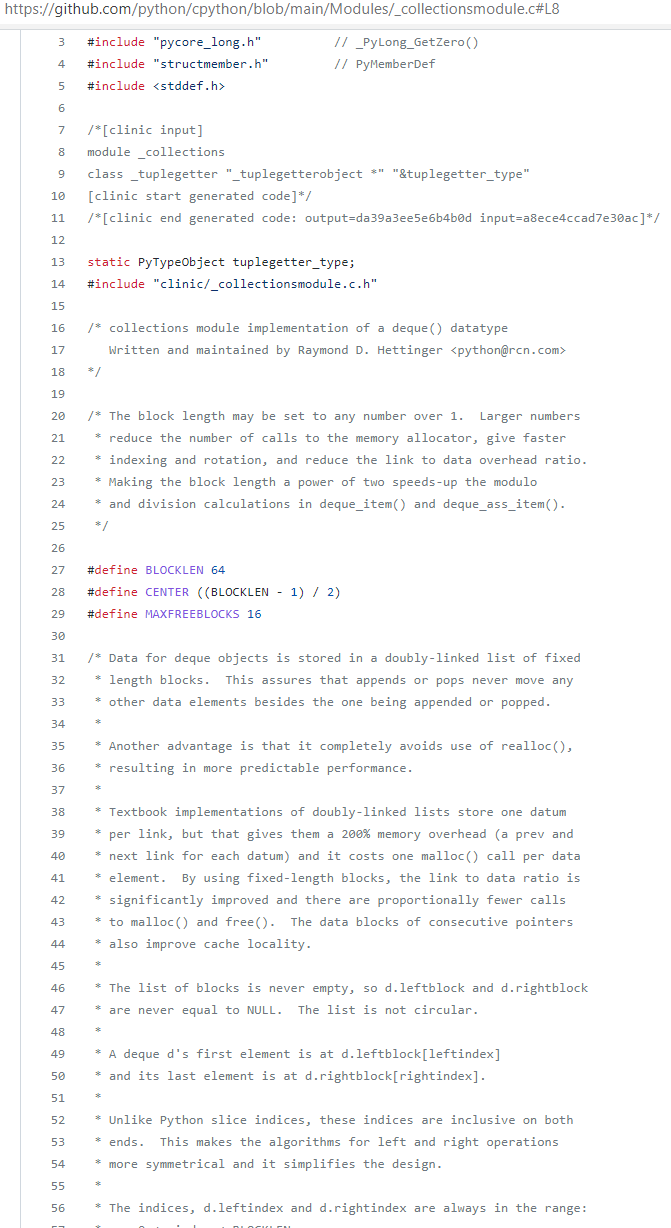Implementing Stack on Top of Python's List (2022)
Problem Description
If you implement a linked list using python's builtin list datatype, as efficient stack data structure, would it be faster than simply using python builtin list (which is implemented as a dynamic array), for push (adding) a million items?
Note: A linked list implementation for the stack data structure is optimal, and should be faster than a smart array that regenerates with items are added to array (which is python's implementation of its builtin list.).
It turns out, no. In general it is almost 3 times slower.
But if you use the builtin lib collections.deque (deque stand for double-ended queue, which is a double-ended stack.) for push/pop operations, then yes, it's faster than python builtin list. The reason is that it is written in C.
This page shows the timing comparison of custom stack written in python against builtin python list.
Implementing Efficient Stack
- implement a stack in python, using linked list. The core of the linked list, must be either python 2-tuple, or list of 2 items.
- you must write 3 function: createLL(pythonList), pushLL(linkedList,x), and popLL(linkedList).
- No lib call. (obviously, else you can write a wrapped to the lib deque)
- the code must have the expected efficiency of stack. that is, push and pop are contant time, regardless of stack length.
The goal, is to see, if a stack using linked list implemented on top of python is more faster than using the builtin python list, for adding an item a million times.
# Code by Dion Bridger, 2022-12-20 def createLL(pythonList): result = [] for item in pythonList: pushLL(result, item) return result def pushLL(linkedList, x): if 0 == len(linkedList): linkedList.append(x) linkedList.append([]) return linkedList else: head = linkedList[0] tail = linkedList[1] linkedList.clear() linkedList.extend([x, [head, tail]]) return linkedList def popLL(linkedList): if 0 == len(linkedList): raise ValueError("Can't pop from empty list.") head = linkedList[0] tail = linkedList[1] linkedList.clear() linkedList.extend(tail) return head # ssss--------------------------------------------------- def createPL(pythonList): return list(pythonList) def pushPL(pythonList, x): return pythonList.append(x) def popPL(pythonList): return pythonList.pop() # ssss--------------------------------------------------- x1 = range(10) xstack = createLL(x1) xlist = createPL(x1) import timeit print(timeit.timeit(lambda: pushLL(xstack, 1), number=1000000)) print(timeit.timeit(lambda: pushPL(xlist, 1), number=1000000)) # print( xstack) # print( xlist ) # ssss--------------------------------------------------- # x1 = range(1_000_000) # xstack = createLL(x1) # xlist = list(x1) # import timeit # print(timeit.timeit(lambda: pushLL(xstack, 1), number=1000)) # print(timeit.timeit(lambda: xlist.append(1), number=1000)) # # print( xstack) # # print( xlist )
Conclusion
Our stack is not faster than python's builtin list, in general. it is about 2 times as low.
Why is collections.deque fast?
because it is written in C.
